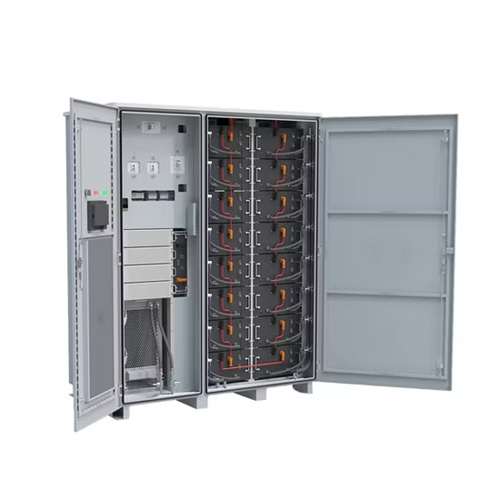Distributed photovoltaic panel category introduction

Historical Market Trends of Distributed Photovoltaic Inverters
Introduction The Australian Photovoltaic (PV) market has evolved over the past ten years, experiencing a by PV (DC) system size category. Distribution Network Service Providers

Impact of Rooftop Photovoltaics on the Distribution System
1. Introduction. Since the 1980s, many researchers have tried to study the impact of photovoltaics (PVs) on the distribution grid. It has been generally believed that once PV penetration exceeds

Temperature distribution analysis of monocrystalline
span>An experiment has been carried out to prove the practicality of converting the waste heat from PV panels into electrical energy by observing the temperature levels and distribution of a

Photovoltaic distributed generation – An international review on
The installed distributed PV capacity in the Portuguese market evolved from 0.01 GW in 2008 to 0.2 GW in 2015 [91]. In 2016, the gross electricity generated in distributed

PPT – Introduction to Grid-Connected Photovoltaic PowerPoint
Solar Thermography for Photovoltaic Panel - This presentation is about the importance of Solar Thermography for Photovoltaic Panels. Thermal Imager Testo 872 is best suited for SPV

Power generation evaluation of solar photovoltaic systems using
Due to the implementation of the "double carbon" strategy, renewable energy has received widespread attention and rapid development. As an important part of renewable energy, solar

Photovoltaic power plants in electrical distribution
Some major standards for PV integration in distribution systems such as IEC 61727, IEEE 1547, and VDE-AR-N4105 are defined and used in to ensure that the power quality and stability defined by grid codes for PV sources

Introduction to distributed and centralized photovoltaic
The difference between distributed photovoltaic and centralized photovoltaic. Distributed photovoltaic power generation refers to a photovoltaic power generation facility that is built near the site and is characterized by self

Research on Static Evaluation of Economic Value of Distributed PV
There are several studies on distributed PV on an international scale. Distributed photovoltaic energy refers to distributed photovoltaic power generation. Photovoltaic power

Distributed Solar Photovoltaics | Project Drawdown
Introduction. Distributed solar photovoltaics (PV) are systems that typically are sited on rooftops, but have less than 1 megawatt of capacity. This solution replaces conventional electricity

(PDF) Effect of Distributed Photovoltaic Generation on
Renewable distributed generation-based photovoltaic sources are one of the best solutions to satisfy the Power Distribution System (PDS) as long as the fossil resources are on the verge of extinction.

Distributed Solar Photovoltaics | Project Drawdown
Introduction. Distributed solar photovoltaics (PV) are systems that typically are sited on rooftops, but have less than 1 megawatt of capacity. This solution replaces conventional electricity-generating technologies such as coal, oil, and

Renewable Distributed Energy Generation: Solar
Introduction. Fig. 1: An array of solar photovoltaic panels are installed on the roof of a commercial building. (Source: Wikipedia Commons) Renewable energy, the idea of obtaining energy from non-depleting natural resources, such as sun,

Wind Coefficient Distribution of Arranged Ground Photovoltaic Panels
recommended that solar panel installations be avoided at the corners of roofs. Common to all the above studies was that solar panels were located at the edge of the roof or at the edge of the

6 FAQs about [Distributed photovoltaic panel category introduction]
What is distributed solar photovoltaics (PV)?
Distributed solar photovoltaics (PV) are systems that typically are sited on rooftops, but have less than 1 megawatt of capacity. This solution replaces conventional electricity-generating technologies such as coal, oil, and natural gas power plants. In a PV system, a solar cell turns energy from the sun into electricity.
Can distributed solar PV be integrated into the grid?
Traditional distribution planning procedures use load growth to inform investments in new distribution infrastructure, with little regard for DG systems and for PV deployment. Power systems can address the challenges associated with integrating distributed solar PV into the grid through a variety of actions.
Do distributed photovoltaic systems contribute to the power balance?
Tom Key, Electric Power Research Institute. Distributed photovoltaic (PV) systems currently make an insignificant contribution to the power balance on all but a few utility distribution systems.
Will distributed solar PV capacity grow in 2024?
Globally, distributed solar PV capacity is forecast to increase by over 250% during the forecast period, reaching 530 GW by 2024 in the main case. Compared with the previous six-year period, expansion more than doubles, with the share of distributed applications in total solar PV capacity growth increasing from 36% to 45%.
What are the standards for PV integration in distribution systems?
Some major standards for PV integration in distribution systems such as IEC 61727, IEEE 1547, and VDE-AR-N4105 are defined and used in to ensure that the power quality and stability defined by grid codes for PV sources connected to the grid are maintained.
What percentage of the solar PV market will be distributed?
Based on estimations of the future solar PV market, we assumed that distributed PV installations will represent around 40 percent of the solar PV market in 2050, with the Utility-Scale Solar Photovoltaics solution capturing the remaining 60 percent (US DOE, 2012; IEA, 2014).
Related Contents
- Distributed photovoltaic panel routing diagram
- Distributed photovoltaic panel maintenance
- Distributed photovoltaic panel profile manufacturers
- Photovoltaic panel project introduction copywriting example
- Photovoltaic Panel Transportation Team Introduction
- Introduction to the photovoltaic panel decoration team
- The difference between centralized and distributed photovoltaic panels
- Distributed photovoltaic flywheel energy storage
- What are distributed photovoltaic panels
- Distributed photovoltaic support manufacturers
- Photovoltaic distributed lightning protection combiner box
- Distributed photovoltaic combiner box sales